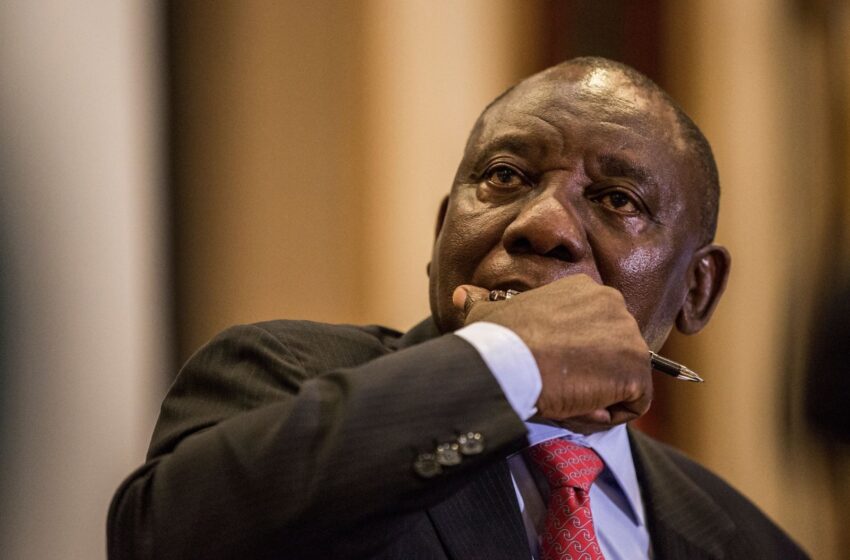Why is the US boycotting the G20 Summit, and what does South Africa’s “empty chair” response mean?

South Africa President Cyril Ramaphosa
South Africa is preparing to host the historic G20 Summit on November 22–23, 2025, but the absence of the US, the world’s largest economy, has cast a sharp geopolitical shadow over the event. President Cyril Ramaphosa has publicly confirmed that he will “symbolically hand over to an empty chair” in response to Washington’s refusal to attend, marking one of the most dramatic diplomatic gestures of the year.
The move follows President Donald Trump’s announcement that no US officials will attend the summit, citing debunked accusations of “human rights abuses” against white South Africans, particularly Afrikaners. Washington’s boycott has amplified existing tensions between the two countries, which have clashed on issues ranging from refugee policies to South Africa’s stance on Israel at the International Court of Justice.
US Boycott Sparks Global Shock: What Triggered the Diplomatic Rift?
The United States’ decision to skip the summit stems from President Trump’s claims that white South Africans, particularly Afrikaners, were being “killed and slaughtered” in racially motivated attacks. South Africa has repeatedly dismissed these statements as false and inflammatory.
Despite these claims being widely discredited, Trump doubled down, announcing that US refugee admissions would prioritize Afrikaners, and that the first group had already arrived in the United States on a chartered plane earlier in the year.
The situation escalated further when Trump accused South Africa of “anti-American” policies, including its G20 theme: “Solidarity, Equality, Sustainability.” Washington described the theme as politically biased, while Pretoria insisted it reflected priorities for the Global South, including climate resilience and debt challenges.
READ ALSO
Ramaphosa: “Their Absence Is Their Loss”
Speaking to the press, Ramaphosa expressed disappointment but maintained that the summit would proceed with or without the US. He emphasized that the absence of Washington would not derail decision-making or progress on key issues facing the world’s leading economies.
“We will take fundamental decisions, and their absence is their loss.”
He also criticized the US for giving up its global leadership role, noting that decisions taken at the summit will move forward regardless of Washington’s stance. The upcoming meeting is historic for another reason: it will be the first time the G20 convenes on African soil.
Why South Africa Still Wants Strong Trade Ties With the US
Despite political tensions, Ramaphosa highlighted the importance of maintaining economic relations with the United States. South Africa considers the US one of its largest trading partners, and millions of dollars’ worth of South African goods flow into American markets annually.
Ramaphosa stressed the need for pragmatic diplomacy:
“Sometimes you have to talk to people who may not be very friendly… to advance the interests of your own people.”
Pretoria is looking to protect trade access, secure investment, and avoid potential economic fallout from a prolonged standoff.
A Historic G20 Moment Overshadowed by Division
With South Africa preparing to hand over the G20 presidency to the US next year, the symbolic “empty chair” gesture underscores the depth of the rift. It also highlights the complexities of global leadership in an era marked by political polarization, competing narratives, and rising Global South assertiveness.
FAQ
1. Why is the United States boycotting the G20 Summit in South Africa?
The US boycott is based on President Donald Trump’s claims that South Africa is committing “human rights abuses” against white Afrikaners, claims South African officials and independent investigators strongly reject as false. Washington also criticized South Africa’s G20 theme as “anti-American.”
2. What did President Ramaphosa mean by “handing over to an empty chair”?
Ramaphosa said he would symbolically hand over the G20 presidency to an “empty chair” because the US, the incoming chair, refuses to attend. The gesture highlights frustration with Washington’s absence, while signaling that the summit’s agenda will proceed regardless.
3. Will the G20 Summit still take place without the US?
Yes. Ramaphosa confirmed the summit will continue as planned on November 22–23, 2025. He stated that key decisions will be made even if the US is not present.
4. Is there evidence that white South Africans are being targeted or “slaughtered”?
No. South Africa has repeatedly denied these claims, and they have been widely debunked. Officials insist there is no racial persecution policy against white citizens.
5. Why did the US say the G20 theme is “anti-American”?
The US argued that South Africa’s theme, “Solidarity, Equality, Sustainability”, reflects anti-American sentiment. South Africa maintains the theme focuses on Global South priorities, particularly climate challenges and debt burdens.
6. What issues will the G20 Summit address without the US present?
South Africa plans to push for climate financing, debt restructuring for developing nations, and stronger Global South representation in global governance.
7. How will the US boycott affect US–South Africa trade relations?
Ramaphosa emphasized that trade ties remain a priority, noting that South African exports largely benefit American consumers. However, prolonged diplomatic tensions could impact future negotiations.
8. Has South Africa previously clashed with the US under Trump?
Yes. Disputes have included refugee policies for Afrikaners, South Africa’s ICJ case against Israel, and its post-apartheid empowerment laws.

